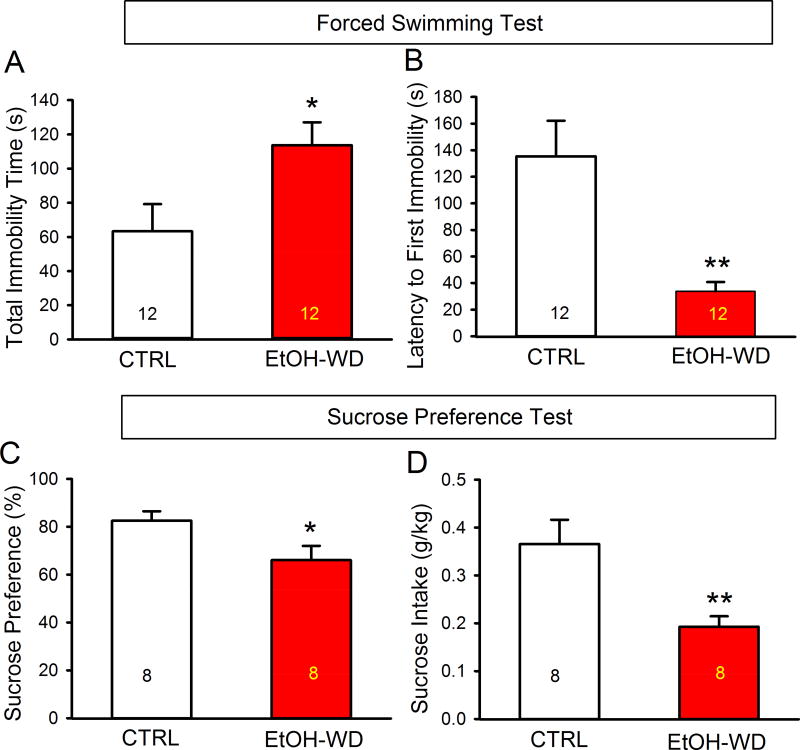Figure 1.
Depressive-like behaviors in ethanol-withdrawal rats. Rats at 48-hour withdrawal from repeated cycles of voluntary ethanol drinking (EtOH-WD) had a significantly prolonged total immobility time (A) and a shortened latency to the first immobility in the forced swim test (B), a reduced sucrose preference (C) and intake (D) in the sucrose preference test, compared with ethanol naïve control (CTRL). *p < 0.05, **p < 0.01. Data are expressed as mean ± SEM.

